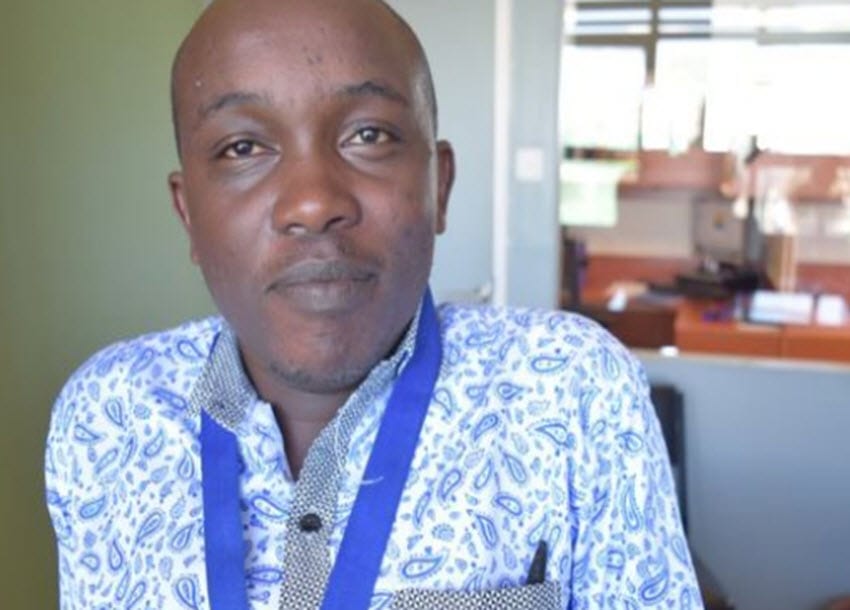After calling lawyer’s wife, boda boda rider threw away the toilet paper and his wife ignored the message assuming someone was conning her
By Pascal MJ Owade
Contributing Editor/Investigations
The killers of lawyer Willie Kimani consumed energy drinks while smoking cigarettes before executing him, his client and taxi driver.
The lead investigator, Robert Owino, told the court as Kimani, his client Josephat Mwenda and taxi driver Joseph Muiruri were being executed; they were dropping cans of energy drinks and cigarette butts at the scene of crime, a thicket at Soweto in Mlolongo town, Machakos County.
According to Owino, two cans of Shark energy drink, a can of Red bull, an empty bottle of mineral water, and a cigarette butts littered the crime scene inside an isolated farm belonging a Mr Njoroge and his wife Agnes Wanyua.
Owino explained that grass at the crime scene was cluttered, had uprooted weeds, a sin of struggle before the killings.
Pathologist Andrew Gachie said Kimani had 14 injuries including crushed skull and genitals. Mwendwa had head, neck and chest injuries. Muiruri had a rope tied round his neck. Five suspects were charged with the murders: police informer Peter Ngugi, police officers Fredrick Leliman, Stephen Cheburet, Sylvia Wanjiku and Leonard Mwangi. Only Mwangi was not found culpable by Lady Justice Jessie Lessit.
Ngugi told the court that all their deaths involved suffocating the victims with polythene bags
Ngugi told the court that all their deaths involved suffocating the victims with polythene bags and strangling them with rope before dumping the bodies into the Ol Donyo Sabuk River in Athi River.
DCI George Kinoti once told Kenyans that murders were easy crimes to solve as long as many people were involved. Clue to finding Willy Kimani’s killers and arresting them was provided by a note written on a toilet paper.
Kimani wrote the note while they were being held at Syokimau Police Post. He then threw it out the window where it was found by a boda boda rider. The note had the cellphone number of Kimani’s wife and which the rider called that June 23, 2016.
After calling Kimani’s wife, the boda boda threw the toilet paper away. His wife, however, ignored the message assuming that someone was trying to con her. But it was only when Kimani failed to return home in the evening that she informed his employer, the International
Justice Mission, about the phone call. Through the International Justice Mission, Kimani was representing Mwenda, who had been shot by police officers Fredrick Leliman on the leg.
Owino, the prosecutor, traced the boda boda rider, but alas! he had discarded the toilet paper
The message from the boda boda rider led his
wife and fellow lawyers to Syokimau Police Post.
Leliman feared he have been sacked from the
Police Service had the court case which was heavily against him, had continued.
He thus found a permanent solution in roping in fellow offices and a police
informer in the murder plans on Kimani and Mwenda. Muiruri, the taxi driver who
took the two to the Mavoko Law Courts
where the case was being heard, was collateral damage.
Owino, the prosecutor, traced the boda boda
rider, but alas! he had discarded the toilet
paper. But it was later found and analysis
showed the handwriting was Kimani’s proving he had been locked inside the
Syokimau Police Post as the witness statement from the boda boda rider
indicated.
“This confirmed that he and the other victims had been confined. The note indicated that the three had been detained at the AP Camp and they were asking for assistance, fearing for their lives.”
Leliman could hear none of it and instructed Ngugi to get them out of the boot one by one
After interrogation, Leliman, who was based at the Syokimau Police Post and who had masterminded the murders, could not explain his whereabouts when Kimani went missing. Leliman and his accomplices could not have been arrested had he listened to the advice of police informer Peter Ngugi, who has been turned into a State witness. Ngugi thought that since the suspects had been formally booked at the Police Post would expose their whereabouts considering a wife to one of them had already been contacted through a cellphone thus exposing the entire operation and those involved. Ngugi was for the release of all the suspects and was not in favour of them being executed, but after three hours of deliberations in between drinking the energy drinks and smoking cigarettes, Leliman could hear none of it and instructed Ngugi to get them out of the boot one by one.
The hearing ended before Judge Jessie Lesiit in a case in which Ngugi testified against his accomplices.

